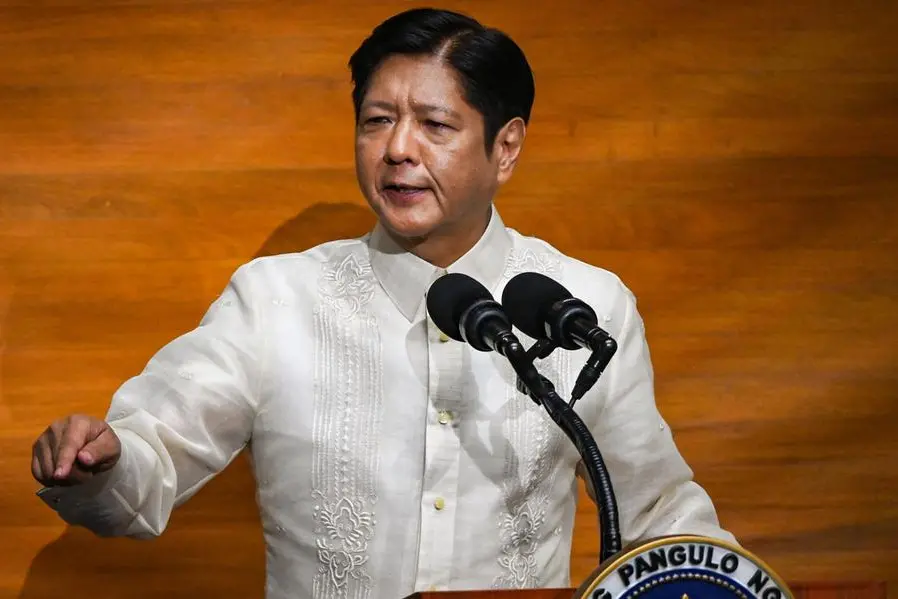PHOTO
President Marcos Jr. will be delivering his third State of the Nation Address (SONA) on 22nd July 2024. We must never forget what an important democratic exercise the SONA is. What the President says will lead the national discourse and this is his halftime report. As we enter the second half of the Marcos administration, there are many topics to lookout for, like agriculture, digital economy or the state of our education. However, personally I'll keep an eye out for national security, trade and energy concerns.
We recently celebrated the historic signing on July 8, 2024 of the Philippines' and Japan's Reciprocal Access Agreement (RAA), and Senate President Chiz Escudero's commitment to prioritize the RAA's consideration upon the resumption of the session of Congress. It is an integral instrument bringing together the Filipino and Japanese people, defense networks of other Japan RAA nations, i.e., United States and Australia and strengthening regional security arrangements in favor of a free and open Indo-Pacific based on the rule of law. It also augurs not only a stronger military relationship but also bolstered economic ties, which is an underlying component to the actualization of our vision of national security. The RAA follows Japan's first Official Security Assistance (OSA) signed last November 2023 with the Philippines, which included the turnover of patrol vessels and coastal surveillance radar systems for the Philippine government.
It bears emphasis that the RAA and OSA are distinct from our various areas of cooperation with Japan, like the Japan International Cooperation Agency (JICA)'s financial support in the form of a $1-billion loan to build the Metro Manila Subway. Department of Finance Secretary Recto noted that the subway could save us travel expenses and carbon emissions to the tune of P2.5 billion each day.
Relatedly, I recently attended the Department of Tourism (DOT)'s Tourism Promotions Board (TPB)'s unveiling ceremony of the 'Philippine Pavilion' in the Ayala Museum in relation to the Philippines' participation in the World Expo 2025 in Osaka, Japan. An excellent initiative of TPB chief Marga Nograles and DOT Secretary Christina Frasco. It is yet another avenue to invite Japanese investments into our country. We should support all these related efforts of security, technological, economic, educational and cultural integration, as our partnership with Japan has proven to be for the prosperity, security and stability of both our nations. After all, Japan was the biggest source of foreign direct investments into the Philippines, with net flows from January to November 2023 valued at $667.58 million, and the Philippines' second largest trading partner with merchandise trade valued at $20 billion in 2023. I look forward to more fruits of the Indo-Pacific Economic Framework for Prosperity (IPEF) Ministerial Meeting last June 2024, where Japan and the Philippines announced even more areas of cooperation like clean energy, agriculture, the high-tech semiconductor industry, digital economy and sustainability.
As I had expressed in the past, national security has unavoidable economic aspects. It likewise involves matters like our energy economy and security that have tremendous implications in the future of our manufacturing sector, competitiveness and innovation.
It leads me to the third and final focal point - the Philippines' and the US' Civil Nuclear Cooperation Agreement which entered into force last July 2, 2024 (also known as the '123 Agreement,' in reference to the 1954 US Atomic Energy Act, Section 123 governing peaceful use of nuclear energy with partner nations). Serious study must be made on the safety, sustainability and suitability of nuclear power in the Philippine context.
For such reason, Senator Grace Poe had steadily raised the issue of the much-needed reforms to Republic Act No. 9136 or Electric Power Industry Reform Act (EPIRA) as early as 2013 and, in 2023, reiterated that we need long-term solutions to blackouts disrupting lives and livelihoods. Senator Grace Poe called for an immediate probe against unscheduled manual load disruption that occurred last year across Western Visayas and particularly in Panay Island. As Senator Win Gatchalian astutely remarked at the time, 'Iloilo City and the Panay Island are economic drivers of the Visayas area. Power supply disturbances should never happen as businesses will suffer tremendous financial losses.' As Senator Poe asserted that 'the rolling blackouts must not be the way of life for our people,' she formulated solutions as chairperson of the Senate committee on public services, leading to our office's proposed approval of franchise bids of several power distribution utilities in Leyte, Romblon and Negros Occidental.
As an international think tank reported in July 2024, the Philippines surpassed China in terms of coal dependency and is the most coal-reliant country in Southeast Asia. Such a terrible fact is exacerbated by estimates indicating that coal constitutes 58 percent of the Philippines' power generation mix. It means that if a hypothetical trade sanction on coal existed or if external factors resulted in zero supply of coal for importation, then the Philippines loses half of its power generation mix. Our latest initiatives like importation terminals for liquified natural gas, a greener fuel, augments the mix. However, our search remains for a truly game-changing proposition that alters the status quo of import dependency. It is evident that we need to establish a new energy industry paradigm, including drastic diversification our import-export ratios.
It's halftime in the Philippines right now. I hope that tomorrow's SONA can inspire, re-energize, galvanize and unite Filipino citizens. I hope it inspires us to be more involved in critical aspects of our shared future, whether it be in terms of national security, foreign policy or energy security. No matter our political preferences, we must realize that we all share a common destiny as Filipinos.
Copyright © 2022 PhilSTAR Daily, Inc Provided by SyndiGate Media Inc. (Syndigate.info).





















